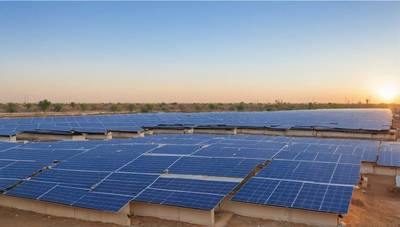Pakistan claims rooftop solar production will exceed grid demand at some hubs in the next few years
Next year, rooftop solar power generation in Pakistan will surpass the electrical grid's daytime demand for the first-time ever in major industrial areas. This was revealed by a senior government representative.
The outlook reflects the record growth in solar panel installations that occurred in the last few years. This boom has resulted in lower emissions, and for some, reduced electricity bills. However it has also caused financial problems for utilities with high debts due to the prolonged decline in grid-based electricty demand.
Aisha Morani, secretary of Pakistan’s climate change ministry, said that Pakistan will experience negative grid-linked demands during certain daytime periods because behind-the meter solar offsets grid consumption completely. This was on the sidelines the COP30 Climate Conference in Brazil. Aisha Moriani, secretary of Pakistan's climate change ministry said that the country will experience negative grid-linked demand during certain daytime hours because behind-the meter solar is offsetting grid consumption completely. She spoke on the sidelines of the COP30 climate conference in Brazil.
She said that "negative demand" was likely to occur in Lahore (northwest Pakistan), which has the highest solar penetration rate, followed by Faisalabad, and Sialkot where industrial areas drive solar adoption. Pakistan's 250,000,000 people have been prompted by power cuts and tariff increases to adopt solar energy. The country is now the third largest panel importer in the world, and solar has surpassed its neighbor China.
Moriani said that the south Asian nation would experience more negative demand events, particularly during sunny summer afternoons, holidays, and days of moderate temperatures with high solar output.
She said that the challenge for Pakistan is not whether or not renewable energy will increase, but how quickly grids, regulations, and market designs can keep up.
She said that the south Asian nation plans to introduce new tariffs and fee structures for large solar users as well as changes in fee structures to ensure that businesses with panels are equally responsible for grid maintenance costs.
This year, Pakistan's grid-linked electricity demand will grow slower than average. Moriani says that consumption will increase more rapidly next year but it could also be affected by increased solar usage.
Moriani stated that the surge in solar energy has prompted Pakistan to renegotiate their LNG contracts with its top supplier Qatar, and cancel cargoes provided by Italy's Eni.
She said that Pakistan was looking for lower prices and flexible delivery schedules as well as fewer cargoes.
She said that while there were no formal talks with Qatar at COP30 "diplomatic space was provided for engagement with energy Ministers and commercial representatives".
The key objective is to align Pakistani gas import strategy according to fiscal space, demand forecast, and seasonal patterns. Pakistan is looking for stability and affordability and not an increase in LNG dependence." (Reporting and editing by David Gregorio; Sudarshan Varadan).
(source: Reuters)



